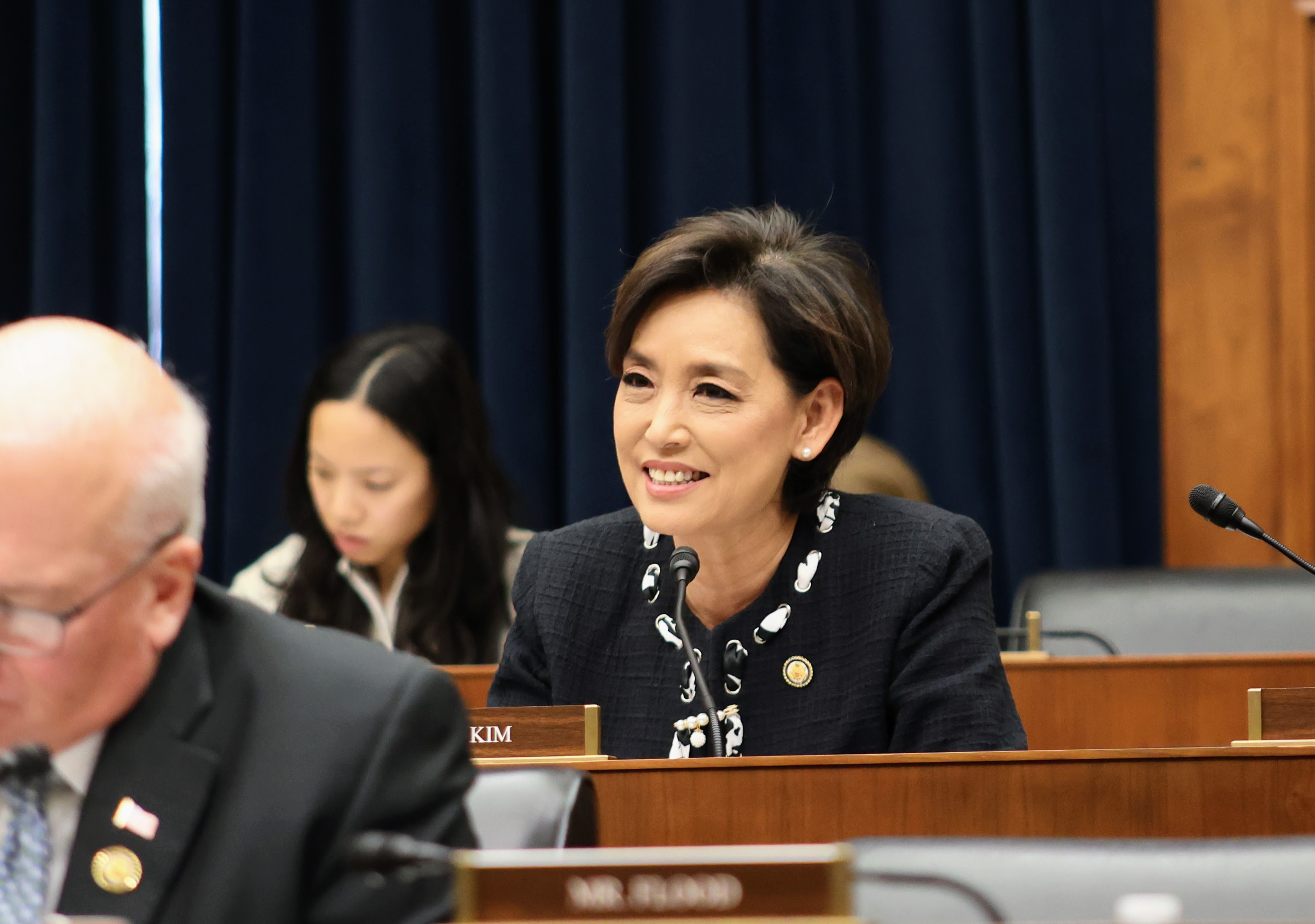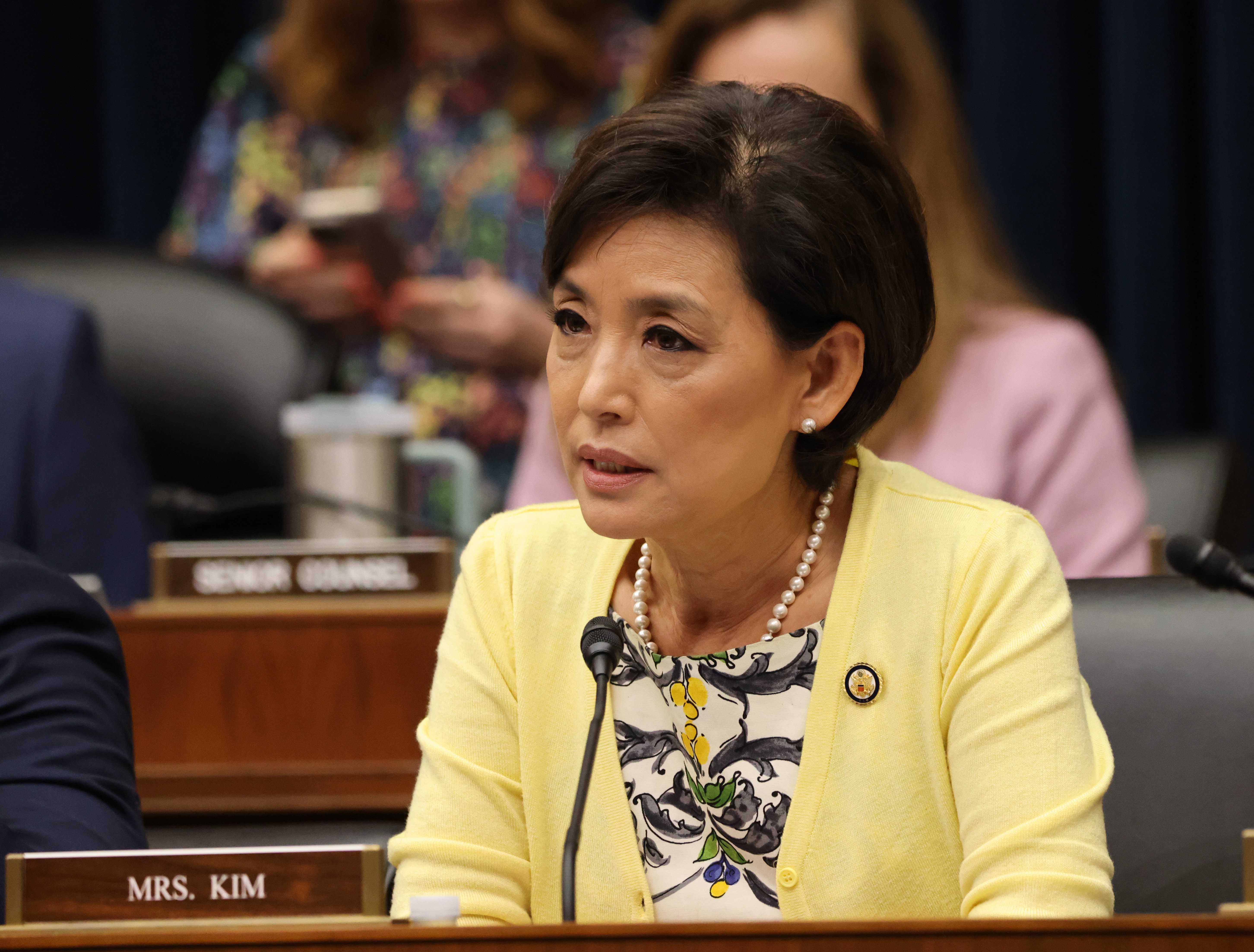BEIJING — California Gov. Gavin Newsom is handing his current and possible future Republican opponents a potent line of political attack in his trip to China this week.
The Democratic governor is pitching the visit as strategic diplomacy aimed at connecting China’s competitive edges in clean energy technology and policy with his administration’s ambitious carbon emission reduction goals.
While Newsom’s focus on the world’s largest climate polluter stands to bolster his reputation among Democrats, it’s also sparked a new opposition campaign from Republicans, who are already using the trip to tie Newsom to the Chinese government.
“Governor Newsom’s effort to cozy up to the Chinese Communist Party is delusional,” said Rep. Michelle Steel (R-Calif.). Newsom should instead “be concerned about the CCP’s control of the critical mineral supply chains as he prepares to ban gasoline-powered cars by 2035.”
Where Newsom has hewed to traditional Democratic positions on domestic issues like gun safety and curriculum wars, he’s veering into shakier political terrain by embracing Chinese officials, particularly with two international wars underway.
Other Democrats are engaging with China, including four Biden cabinet officials and a congressional delegation led by Senate Majority Leader Chuck Schumer.
But Newsom’s possible presidential aspirations may hinge on how he weathers a GOP narrative that his China visit may harm the U.S. Recent congressional races in Pennsylvania and Missouri became slug matches between rival candidates accusing each other of having questionable past business ties to Beijing. And Republican presidential contenders hammered Vivek Ramaswamy over his financial dealings in China during the second candidates’ debate last month.
Beijing is already playing into Republican talking points by praising Newsom’s visit as a path to “bolster California’s exchanges and cooperation with China,” as Chinese Foreign Ministry spokesperson Mao Ning told reporters on Thursday.
At a climate-focused speech at Hong Kong University on Monday, Chinese officials applauded Newsom’s leadership and his vision of mutuality for the U.S. and China. “How to handle our relationship well is a question of the century, to which the two countries must provide a good answer,” said Ministry of Foreign Affairs Commissioner Liu Guangyuan.
At the same time, GOP China hawks on Capitol Hill are sharpening their knives over Newsom’s willingness to engage with a government that Mike Gallagher (R-Wis.), chair of the House Select Committee on China, described in August as a greater threat to the U.S. than climate change.
Many GOP lawmakers see Newsom’s outreach to Beijing as inappropriate in the face of bilateral trade disputes, the Chinese spy balloon incident in February and Beijing’s alignment with Russian President Vladimir Putin’s war on Ukraine and now in the Israel-Hamas war. Newsom’s emphasis on climate cooperation — an issue reviled by many Republicans — makes his travel plans doubly triggering for GOP lawmakers who see China as an existential threat. And there are concerns that Beijing will exploit Newsom’s eagerness to engage by trying to create an influence channel with his administration unburdened by chronic bilateral irritants.
Other GOP lawmakers see Newsom’s engagement with Beijing as a potential national security threat. Newsom’s trip focus “is not on addressing climate issues, but instead ceding America’s energy and emissions reduction to the CCP,” said Rep. Cathy McMorris Rodgers (R-Wash.), chair of the House Energy and Commerce Committee. That will give China “more control over our energy future.”
Some Democrats support Newsom’s outreach. “It’s totally appropriate, said Rep. Ami Bera (D-Calif.), ranking member of the House Foreign Affairs Committee Indo-Pacific subcommittee. “There’s no way for us to address climate change at the global level without engaging China.”
GOP criticism may reflect some partisan shin-kicking of a rising star of the Democratic Party who has long-rumored — but consistently denied —ambitions for higher office. Newsom’s possible trajectory to the White House is also of interest to his Chinese hosts.
“He’s a potential presidential candidate, maybe 2028, who knows when, and that’s not lost on the Chinese,” said Max Baucus, former U.S. Ambassador to China. Chinese officials will be “checking this guy out. Who is this guy Gavin? What’s he all about? They want to know,” Baucus said.
Newsom’s decision to limit his discussions with Chinese officials to mostly climate-related issues is a gift to his critics. Newsom administration officials have said he will largely steer clear of hot-button issues like technology transfers, trade subsidies and human rights. Republican lawmakers say that’s unacceptable. “Given your refusal to discuss human rights and the fentanyl crisis with the CCP, we do not see how this trip will benefit Californians — we call on you to cancel your trip,” a group of eleven Californian GOP House members including Rep. Young Kim chair of the House Foreign Affairs Committee Indo-Pacific subcommittee and Rep. Kevin McCarthy said in a letter to Newsom on Friday.
A politician who won’t push China on points of conflict is exactly the kind of partner China wants, say conservatives. Beijing is on the lookout for “American political or business leaders who have a somewhat different view [of China] than that of the D.C. political class,” said Zack Cooper, a China expert and former assistant to the deputy national security adviser for combating terrorism at the National Security Council in former President George W. Bush’s administration.
It’s also red meat for lawmakers who demand U.S. officials take a tougher line with Beijing. Newsom should “re-iterate U.S. national security priorities, including deterring CCP military aggression against allies in the Indo-Pacific, stopping China from supplying U.S. fentanyl precursors, and getting them to play by the rules on trade and economic issues,” said Rep. Michael McCaul (R-Texas), chair of the House Foreign Affairs Committee on China. A Pentagon report published Thursday warning of the country’s dramatic expansion of its nuclear arsenal adds to fears of a growing military threat from China.
McCaul’s position has sympathy on the other side of the aisle. “All public officials must be able and willing to confront the abuses of the CCP … we can either have leadership or an avoidance of hard issues but we cannot have both,” said Rep. Ritchie Torres (D-N.Y.), a House Select Committee on China member.
Advocates say Newsom’s reluctance to engage on human rights undermines his goal of improving bilateral cooperation to tackle the climate crisis. Productive climate talks with Beijing require him “to speak up on the Chinese government’s crackdowns on environmental protests, arrests of climate activists, whistleblowers and journalists over the years,” said Yaqiu Wang, research director for China, Hong Kong and Taiwan at the nonprofit organization Freedom House.
Those concerns may overthink the implications of Newsom’s first official visit to China.
“The tone should be one of just ‘Hey, we’ve got to work together. Let’s figure out a way of respecting each other’,” said former ambassador Baucus.



